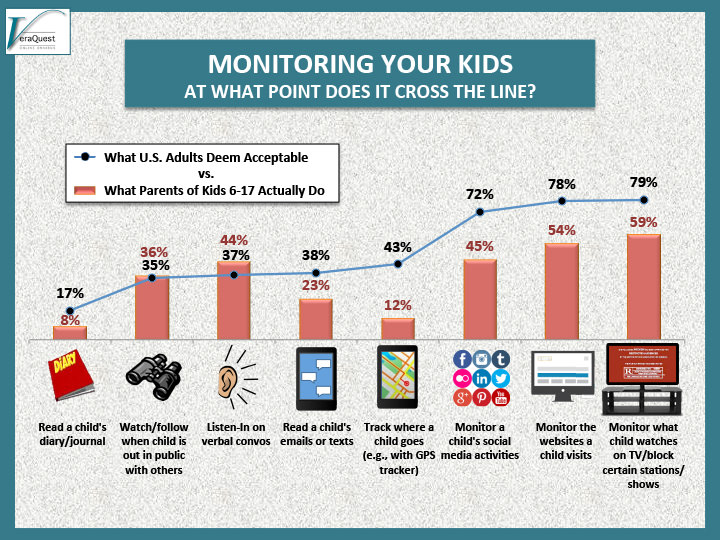My wife and I never really monitored our kids’ leisure activities all that closely – what they were doing online, what they were watching on TV, who they were texting, etc. – when they were growing up. We knew who they were friends with and that’s what was most important to us. I suppose we trusted that the core values and principles we tried to instill in them had taken hold in at least some basic sort of way. My kids were definitely not perfect, mind you – they’ve probably done plenty of things that I don’t want to know about at this point…some of which spills out from time to time! But that very basic trust factor was there. On top of that, I felt strongly that monitoring their personal conversations or activities would have been a huge violation of privacy. Now would I have been so resolute in that feeling if my kids were getting into serious trouble or if they somehow gave me cause for greater concern? Perhaps not. I can certainly see why some parents would want to monitor their kids’ activities.
From our recent survey of 1,503 U.S. adults (including 387 parents of kids 6-17 years of age), we see that it’s clearly a delicate balance. The vast majority of adults (80%) agree that “respecting a child’s privacy is very important”… yet almost as many (74%) also feel that “parents should do whatever they need to do to protect their kids in today’s society, even if it violates their privacy”.

So what IS acceptable for parents to do? Most U.S. adults feel it’s completely acceptable for parents to monitor what their children watch on TV or block certain stations/shows (79%). It’s also acceptable to monitor their website visitation (78%) and social media activities (72%). That’s about where the consensus ends.
Far fewer Americans feel that it’s acceptable for parents to track where their child goes – e.g., with a GPS tracker (43%), read their child’s emails/texts (38%), listen-in on verbal conversations in-person or over the phone (37%), or watch/follow their child when he or she is out with others in public (35%). And only 17% believe it’s acceptable to read a child’s diary or journal.
So what kinds of monitoring are parents actually doing? TV-related monitoring (59%) is most common among parents of kids 6-17 years old. Over half (54%) monitor their child’s website visitation, while a little less than half (45%) monitor their child’s social media activities. Just over half (52%) of parents of teens monitor their child’s social media activities, compared to 44% of parents of kids/tweens 6-12 year olds…which makes sense, as teens are more likely to have social media accounts.
More than two-in-five parents (44%) admit to listening-in on their child’s conversations (in-person or over the phone) – probably one of the simplest monitoring methods these days. And over one-third (36%) say they have watched/followed their child when he or she is out with others in public. I’d love to hear those stories! Though I’m picturing parents hiding behind bushes, rather than using James Bond-style “trailing” techniques.
Just under one-quarter (23%) of parents of kids 6-17 say that they read their child’s emails or texts. Very few (12%) track their child’s whereabouts (e.g., with a GPS tracker) or read their child’s private diary/journal (8%).
Where do you feel that parents “cross the line”, if at all, when it comes to the battle between respecting their kids’ privacy and keeping them safe? Do you think kids are savvier than adults these days? Is it even possible to truly monitor them?
Leave a Reply